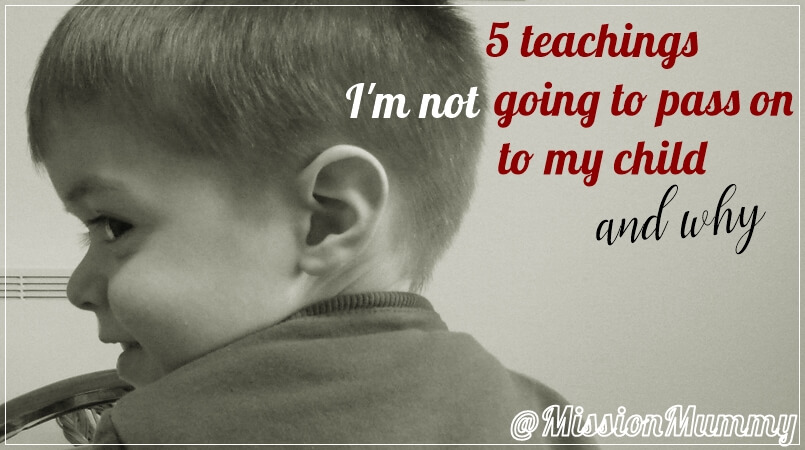Let us prayJune 8, 2018


I love prayer, I love to dive into prayer, immerse myself under the water and allow my body to sink just a little before resurfacing. But deep prayer needs time to develop, to root and to grow, even neglected it pulls on that deep history of relationship and tension of understanding.
One of the biggest regrets I have is that I do not have a regular church family for Adam. I have breathed prayers over his sleeping form in the crib, I held my conversations with my creator in the moments when his attention was elsewhere, I ached for him to know the love of a God who, in hindsight, I barely introduced him to.
So how do you introduce and foster a prayer life in a toddler or preschooler without going hyper spiritual overnight? Asking a child to talk to an invisible power who will watch over them can seem a little intimidating. Mostly you dig the soil, till the ground and wait for God to plant the seed.
Here are my 8 starting points.
1. Inform them. Say what you are going to do, expand if they ask questions. If preschoolers sense something is important to you they will take it more seriously over time.
2. Read books. I’ve been deliberate about reading the christian books we had, it took off most at Christmas but the kids bible is one of the regular options for him at bedtime and it being a real story means he was drawn to the different style.
3. Explain religious holidays. We followed the the holy week journey this year for the second time and we loved it – the biggest difference was that we could explain what each days activities linked to. (I will write up how we linked this to extra preschool activities next Lent for those wanting to join in)
4. Say grace. I grew up saying the simplest grace I know. That grace is now said every time our family sits at the table. It’s easy to learn, it’s easy to memorise, and it’s easy to say real fast.
Thank you Jesus for this food. Amen
5. Begin bedtime prayers. Adam sits next to me or on my lap for our story-time and I keep him there a few seconds longer, holding his hands together for our brief prayers. We thank the Lord for the good things about our day and ask for a good night sleep. Slowly we are thanking God for his good gifts to us and introducing our own needs. We are moving towards recognising God and bringing our praises to him.
6. Do one thing consistently, solo if necessary, to form a routine. Pray the prayer out loud even if they don’t. I prayed with Adam for weeks until one day I forgot to add a thanks for playing with a certain friend, he couldn’t resist adding it between “in Jesus name” and “Amen”.
7. Start with Jesus, his character is much more relate-able to young children. Adam calls bibles Jesus books and I’m not correcting him. The first bible stories have sad endings, Adam and Eve are thrown out, the world is flooded, people are pushed away from friends at babel, Joseph is sold and jailed and Moses is thrown into a river.
8. Work backwards. Decide what kind of spiritual life you’d like to be sharing with your child and then plan steps to that goal. Do you want to aim for family devotionals? Scripture memorisation? Exclude time spent in church from this equation – because it’s a different environment.
Here was one of his first solo prayer times –
Mummy: Do you want to say the prayers tonight?
Adam: Yeah
Mummy: Dear father God,
Adam: Thank you for a today playing outside with my friends. Thank you for the rain that makes plants grow like strawberries. Thank you for the rain that makes plants grow big and tall so we can have a picnic. In Jesus name, Amen.
Photo by Artem Bali on Unsplash
The end of the line : christian beliefs that my child doesn’t needApril 5, 2018


Every generation has it’s foibles, it fanatic fights, it’s earnest beliefs that we can choose to let live, feed and grow, or allow to fade on our watch. I look at the innocence that runs about this house and realise I am his starting blueprint. I am the influence that will start his conversation, form his prejudices and set his values.
This Easter I struggled but as I explained the story of what happened to my 3 year old he drank it all in, he wanted more, and it’s a journey I’m really excited about taking with him. He redeemed my Easter celebrations with his curiosity, trust and faith. As we journeyed I found myself opening supporting materials and closing them rapidly. I’ve realised there are things I was taught as key parts of my early christian identity that I’m not going to pass on. These are my top 5:
1. Overly sin-centric approaches
So many explanations of Christianity start with sin. I’ve been through phases of being very aware of being sin-soaked and never quite knowing if this was positive or negative. I do believe a lot has to do with the churches obsession with what’s called penal substitution. My every sin piled on the already wounded shoulders of my saviour, adding to Jesus’ agony and need to separate the father from himself. Forgiveness came with a heavy guilt price tag. But I’ve come to reject that theology, separation of God is impossible. Your ledger isn’t heavy or light, you have none, there are no accounts or records, only acceptance and forgiveness. Sin has been dealt with, end of story. Jesus has died and our sinful selves with him, the new life is there for the taking. You can either take the grace on offer or ignore it, but you can’t do anything to change it. I want to introduce my child to God’s great world and how he saved mankind again and again and again until Jesus came along and dealt with the underlying problem forever.
2. Purity culture
Purity culture has one huge flaw, it make sexual sin greater than any other. I was a late bloomer, by the time I finally got the hormonal kick up the backside I’d already been to countless things that discussed how to ‘keep pure’ and ‘how far was too far’. Honestly speaking, “True love” waits is kinda insulting to relationship that don’t. The sex thing was a thorn in my side. It made my faith a faith of barriers not liberation and frankly that’s really quite sad. This great litmus test pushed many youngsters away. Sex shouldn’t be a weapon, a tool, a hormonal frenzy or a legal contract. It should be a beautiful equal next step in the love shared between two of God’s beloved children. I’d still advocate a wedding as part of that journey.
3. God hates.
Did you read the title and nod? Perhaps not visibly. I saw a post about a kids lesson entitled the six things God hates and recoiled from the screen. Many of the things that upset God in scripture are quite reasonable, the proverbs 6 list this lesson uses, the unforgivable sin of Mark 3, or the wicked heart of Hebrews 3. If you look hard enough you can make God sound black and whites, angry and unapproachable. For the absolute mind of a younger child the nuances of God being apposing things isn’t helpful. The lion of Judah is indeed fierce and demands respect but even when he appears in a burning bush he still tenderly draws us close to his love. Talk about what makes God sad, what disappoints him, but the divine parent doesn’t hate his children.
4. Declaring something wrong
As a child I read my Good News Bible and it stated – “Don’t you know that God’s people will judge the world?” It’s easy to replace that ‘will‘ with ‘can‘ or ‘should‘ or even ‘need to‘! The same passage in 1 Corinthians 6 condemns homosexuality. Who was I to question the scripture? I was taught that other religions were simply wrong, misguided at best. Sadly they topped a long list. Somehow this feels very far from the God man who doodled in the dirt and challenged someone to throw the first stone. I want to raise a child who recognises God is not limited to our perspective. Just because we don’t see, or we think that it’s not compatible, it doesn’t mean God isn’t in the midst of it. Ahem, astrology and the Magi?
5. Friendships with an agenda
The instructions echo in my memory – We should be sharing the gospel with our school friends. We should be getting them to join the ‘God club’. Go befriend her and introduce her to the best friend ever – Jesus! I squirmed so much at the talk of evangelism targeted at kids, I still do. Friends should be important allies as kids, not pet projects. Faith sharing for kids should be something they feel free to talk about but not pressured to do. Kids can serve God in so many ways, they can share the gospel in so many actions, they can build his church, I know this as absolute fact. There is a reason people close their door to cold call evangelists, youngsters don’t always have that option and peer pressure is powerful. Frankly, most parents would also prefer their religious choices not hijacked either.
So there are my 5 things I’m sure I missed some biggies – What would you add?
DescendingFebruary 7, 2018


Humility teaches us that we don’t have to obey our emotions because the only version of reality that matters is God’s.
(H Anderson. Humble Roots: How Humility Grounds and Nourishes Your Soul)
I’ve been on an unwitting journey. As January unravelled into the new year I’ve felt myself unravelling too. Much of the latter part of 2017 felt like hurdles spread over a marathon. I kept up a long slow jog from one event to the next, never quite relaxing into the steady rhythm as I prepared always to lift both feet before the next journeys leg.
In the last 2 weeks I’ve seen hubby find his grove again, he’s working amazingly well, in contrast I’m the picture of lethargy. The energy and strive to find routines that excited only a month ago seems to have drained away living little residue. I can pinpoint only vague causes, quantify the hours doing things that don’t energise me, see the general shift as I struggle to rise from the covers later and later into the morning. I can see the eczema grow it’s way across my pinkie finger, and frustratingly around my eye. And yet as the grey shroud descends I’m not in the least bit worried.
Partly it’s because I’ve spent this slow drift downwards dwelling in books like the one quoted above. Partly because what was holding my head above the water for that long marathon was the expectations and perceived essential tasks that left me sleepless at night and feeling guilty about failing. by letting them fall with everything else I’ve been released from a burden.
This is a time of deconstructing, it’s a time of redefining and refining the accumulated stuff that I’ve horded after all the years here. This is a crucial stage of really hearing ‘the call’ and to do it you have to stop walking ahead and honestly look at where you are and where your heart truly lays.
What are your gifts?
What are your passions?
What call is encoded into your very DNA?
Twee though it sounds, I always wanted to be like my Mum – someone who gave her whole heart to serve, who followed where-ever called, and poured love out on her family. A woman who created a refuge inside our front door, to give beyond what was comfortable, to accumulate wealth in ways no bank account would accept.
Equally I always wanted to create, to craft and share, to make for joy and beauty but for a purpose too. I wanted to stand back and say ‘that is good‘ and if at all possible ‘that is something I give back to the God who gave me all‘.
Those are my passions and those are the building bricks that I’m praying God will choose to use as we, my Lord and I, rebuild out of the rubble in the present dust cloud. During which I hope I, as ‘Humble Roots’ put’s it, “ learn a kind of humility that makes us fearless and productive.”
Photo by Rucksack Magazine on Unsplash

